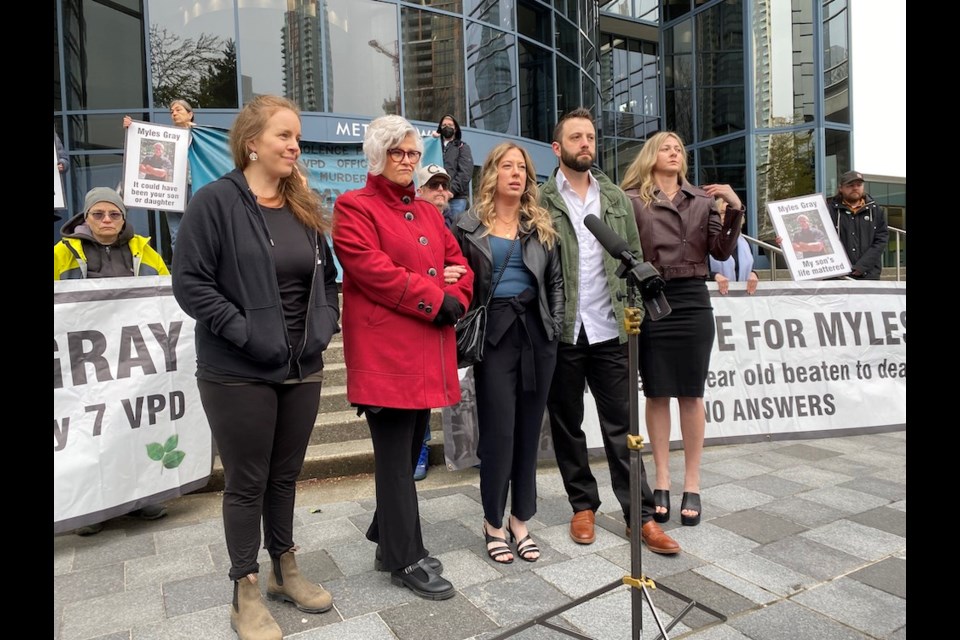Nearly eight years after Myles Gray died after a confrontation with Vancouver Police Department officers, the BC Coroners Service began its inquest into the circumstances surrounding the Sechelt business owner’s death.
Gray was making deliveries for his Sechelt-based plant business in Burnaby on Aug. 13, 2015, when the police were called to a dispute between Gray and a resident. After a confrontation with seven police officers from Vancouver Police Department, the 33-year-old Gray died. Despite extensive injuries, an autopsy could not determine the cause of death.
The inquest is expected to include the first time the police officers — who were the only witnesses to the altercation between themselves and Gray — will publicly speak about what happened that day.
On April 17, the inquest began the first of 10 scheduled days. It will be available to the public via livestreaming.
Before the inquest began, a crowd gathered outside the Burnaby Coroners’ Court. Members of Myles Gray’s family stood in front of banners that called for justice for Myles, and addressed the media. Myles’s younger sister Melissa Gray said she wants the police officers “to acknowledge what they’ve done” and that they should be fired.
When asked what she hopes will come out of the inquest, Melissa said, body cameras, police accountability and notetaking, as well as education around de-escalating mental health crises.
Melissa was the first to testify. She is a registered psychiatric nurse. After Myles’s death, she and her husband moved to Sechelt and took over Myles’s business. In front of the five jurors, she said Myles was diagnosed with bipolar disorder around 1999 and had been stable since. She described her brother as someone who “had friends wherever he went.”
“Myles was goofy and kind, but beyond all things, Myles was loyal.”
Four more witnesses were called on Monday, including Myles’s family physician, an RCMP officer and several people who saw Myles on Aug. 13, 2015, before the altercation with police. Between April 17 and 28, 41 witnesses are scheduled to testify, including police officers involved in the incident. The Globe and Mail reports the woman who had the altercation with Myles and her son are among the witnesses.
Process of an inquest
Inquests are mandatory in B.C. when someone dies while detained by or in the custody of a police officer, but are not criminal trials.
“By law, the jury is restricted to finding the facts of the case. It may not make any finding that implies legal responsibility. The presiding coroner is responsible for ensuring that the jury maintains the goal of fact-finding, not fault finding,” a fact sheet from the Coroners' Office states.
Previously, the Independent Investigations Office (IIO) determined there was “reasonable grounds to believe the officers may have committed offences.” Then in December 2020, B.C.’s Prosecution Service announced that no criminal charges were approved against any of the officers involved in the arrest of Gray. A separate investigation by the Office of the Police Complaint Commissioner (OPCC) into the conduct of the Vancouver police officers is ongoing.
Once the inquest concludes, the jury will decide the classification of death: natural, accidental, suicide, homicide or undetermined. The jury’s findings will be public at the end of the inquest, and the verdict with the coroner’s comments, which includes the summary of evidence presented, will typically be publicly available within a month of the inquest’s conclusion.
The jury will also provide recommendations to prevent deaths in similar circumstances.


